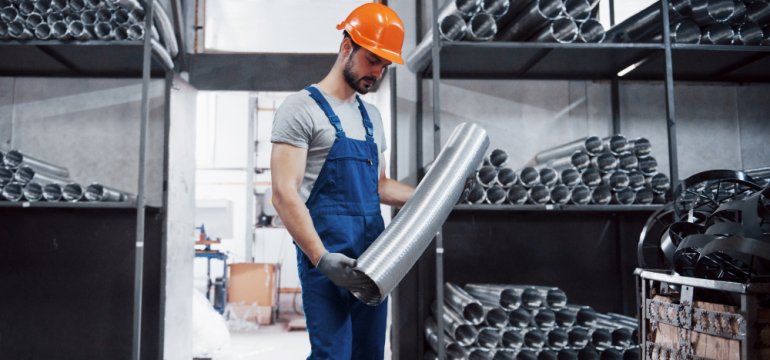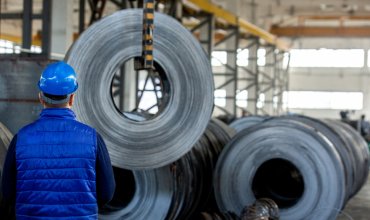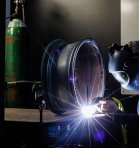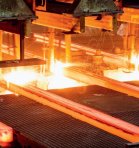Aluminum is one of the most important materials used in industry worldwide. It is lightweight, corrosion-resistant, and at the same time has excellent thermal and electrical conductivity properties. In this article we will take a closer look at the topic of who produces the most aluminum in the world. We will delve into which countries dominate the production of this metal, what are the trends and technologies used in the aluminum industry, and what the situation is like in Poland. At the same time, we will discuss the impact of aluminum production on the environment and future prospects.
Global leaders in aluminum production
China as a leader in aluminum production
China has been the world's largest aluminum producer for years. Already at the beginning of the 21st century, the country began to dominate this industrial sector and has not lost its leadership position until today. A key factor that has contributed to this success is the huge investment in infrastructure and technology, as well as access to countless resources of bauxite - the raw material from which aluminum is made.
Chinese companies such as China Hongqiao Group and Chalco are the largest aluminum producers in the world. In addition, the PRC government has policies that support the development of the aluminum industry, further strengthening the country's position in the global market. China produces more than half of the world's aluminum, an impressive figure.
However, the growth in aluminum production also comes with some challenges. One of them is the huge energy consumption, which affects the environment. As a result, the Chinese government is taking steps to reduce CO2 emissions by investing in green technologies and modern production methods.
Dynamic growth of aluminum production in India
India is one of the fastest growing aluminum producers in the world. The country has vast resources of bauxite, which is the fundamental raw material for the production of the metal. In recent years, India has seen dynamic growth in production and is becoming increasingly competitive in the global market. Large companies like Hindalco Industries and the National Aluminum Company (Nalco) have played a key role in developing the sector in the country.
India is focusing on modernizing its plants and investing in new technologies to increase the efficiency and quality of aluminum production. This allows India to compete with other global players in this field. The benefits of low operating costs are also not insignificant, making India attract investors from around the world.
However, the development of the aluminum industry in India is not without challenges. The country is struggling with infrastructure issues and access to energy, both of which are necessary for large-scale operations. Nevertheless, India has great potential and could be an even greater force in the global aluminum market in the future.
Other countries at the forefront of aluminum production
Russia - the giant of the aluminum industry
Russia is one of the world's leading aluminum producers, mainly due to its huge bauxite resources and strongly developed energy industry. Major companies such as Rusal (Russian Aluminum) dominate aluminum production, both domestically and internationally.
The Russian aluminum industry is known for its high quality production and innovative technologies. Russia is focusing on modernizing its plants and investing in new technologies to remain competitive in the global market. Rusal, which is one of the world's largest aluminum producers, plays a key role in shaping the global aluminum market.
However, aluminum production in Russia, as in other major mining countries, comes with environmental challenges. Authorities and companies are focusing on sustainable development and reducing CO2 emissions to counteract negative environmental effects.
United Arab Emirates - modernity and innovation
The UAE has become a major player in the aluminum production market thanks to strategic investments in infrastructure and modern technology. One of the most recognizable producers in the region is Emirates Global Aluminium (EGA), which is one of the largest aluminum producers in the world.
The UAE is investing in modern production facilities and innovative technologies that allow the sector to grow sustainably. The country also has one of the most modern export terminals, enabling efficient distribution of aluminum to international markets.
However, like other aluminum-producing countries, the UAE faces environmental challenges and sustainability issues. The authorities are focusing on reducing CO2 emissions and investing in green technologies to reduce the negative environmental impact of aluminum production.
Poland against the background of global aluminum producers
Polish aluminum industry - current situation and prospects
Poland is not one of the world's leading aluminum producers, but the aluminum industry in the country is developing rapidly. Poland is home to several key aluminum companies, such as Kety SA, Grupa Kęty and Impexmetal. These companies produce aluminum products of various types, including foil, sheet metal, structural profiles and components for the automotive and aviation industries.
The Polish aluminum industry relies on innovation and cooperation with research and development centers. Companies are investing in modern technologies and improving production processes to increase efficiency and competitiveness in the international market.
Challenges and opportunities for the development of the Polish aluminum industry
One of the main challenges for the Polish aluminum industry is access to raw materials. Poland does not have sufficient bauxite resources, making it necessary to import this raw material from other countries. Nevertheless, Polish companies are able to effectively manage imports and optimize production processes, which allows them to remain competitive in the market.
An important factor for the future of the Polish aluminum industry is also sustainable development and investment in technologies that reduce the environmental impact of aluminum production. Poland is betting on the development of green technologies and investing in renewable energy sources, which can contribute to the sustainable development of the aluminum sector.
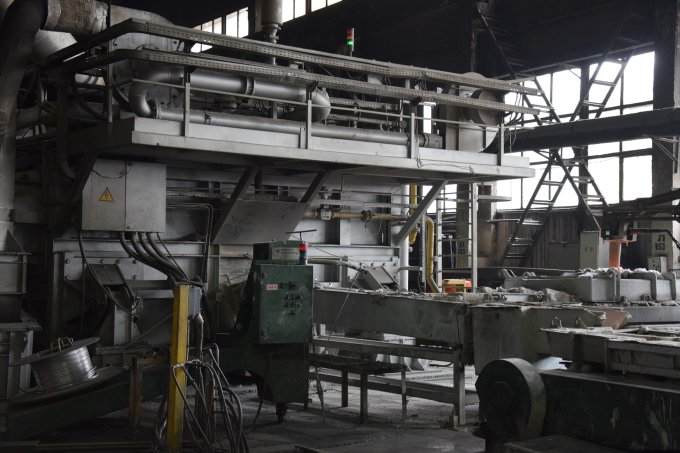
Technologies and innovations in aluminum production
Modern methods of aluminum production
Aluminum production requires advanced technologies and innovative methods to increase efficiency and reduce production costs. One of the key processes used in aluminum production is the electrolytic method, which involves the electrolysis of aluminum oxide - the main component of bauxite. This process is very energy-intensive, giving countries with cheap and accessible energy a competitive advantage.
Modern technologies, such as innovative electrolytic furnaces and methods of recovering aluminum from waste, allow for increased production efficiency and reduced environmental impact. One example is Elysis technology, jointly developed by Alcoa and Rio Tinto, which eliminates CO2 emissions during electrolysis and replaces them with oxygen.
Innovations in aluminum recycling
Aluminum recycling is one of the key elements of the industry's sustainability. Aluminum is a material that can be recycled virtually indefinitely without losing its properties. This makes aluminum recycling not only environmentally friendly, but also economically viable.
Innovative aluminum recycling methods make it possible to recover raw material from production waste and used aluminum products. Examples of such technologies include advanced sorting lines, which enable efficient separation of aluminum from other materials, and advanced remelting furnaces, which minimize the loss of raw material.
Aluminum recycling in Poland is also gaining in importance. Companies such as Grupa Kęty are investing in modern recycling lines and improving the processing of aluminum scrap, which allows for the efficient use of available raw materials and the reduction of negative environmental impacts.
Environmental impact of aluminum production
Environmental challenges in aluminum production
Aluminum production involves many environmental challenges that cannot be ignored. The electrolysis process of aluminum is very energy-intensive, which means that the production of this metal is often associated with high CO2 emissions. In countries that rely on fossil fuels, aluminum production can contribute significantly to environmental pollution and climate change.
In response to these challenges, many countries and aluminum industry companies are betting on sustainability and investing in green technologies. One example is the previously mentioned Elysis technology, which eliminates CO2 emissions in the electrolysis process. In addition, more and more aluminum companies are investing in renewable energy sources, such as wind and solar power, to power their production facilities.
Sustainability and the future of aluminum production
Sustainability in aluminum production is key to minimizing the negative environmental effects of the industry. Incorporating modern technologies and renewable energy sources is essential for the aluminum industry to adapt to growing environmental demands.
It is also worth noting the growing importance of aluminum recycling as part of sustainable development. By recycling aluminum again and again, the industry can significantly reduce its consumption of natural resources and greenhouse gas emissions. Recycling aluminum requires significantly less energy than primary production, making it a greener alternative.
Summary
Who produces the most aluminum in the world? As we can see, the answer to this question is complex and requires analysis of many factors. China dominates the market thanks to its vast resources and investment in modern technology. India, Russia and the United Arab Emirates also play key roles in the global market, with each of these countries bringing their own unique innovations and approaches to the production of the metal.
Poland, although not a major player in the global market, is developing its production capacity and is betting on innovative technologies and sustainable development. Polish companies are actively participating in the process of modernization and optimization of aluminum production, which allows them to compete in the international market.
Aluminum production involves many environmental challenges that cannot be ignored. Investments in green technologies and recycling are key to the sustainable development of this industry. This will help reduce environmental impact and further develop aluminum production.
In the future, sustainability and technological innovation will be key to maintaining competitiveness in the global aluminum market. By continuing to invest in modern technology and green energy sources, the aluminum industry can continue to grow while minimizing the negative impact on our environment.
The totality of knowledge about who produces the most aluminum in the world shows that it is a rapidly growing field with great potential, but also with numerous challenges. The further development of the aluminum industry will depend on technological innovation, energy efficiency and a sustainable approach to aluminum production and recycling.


